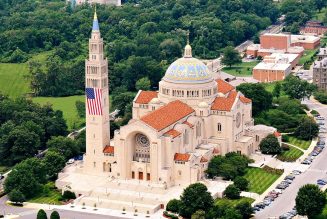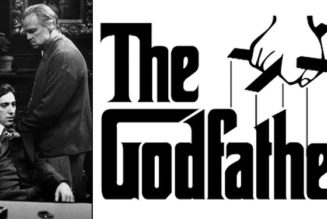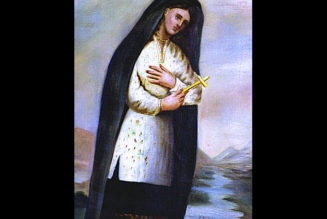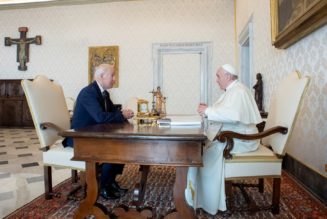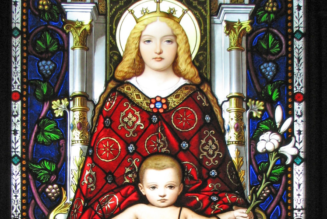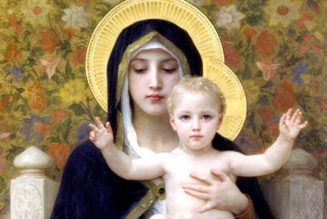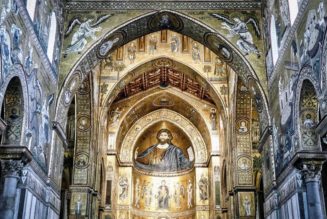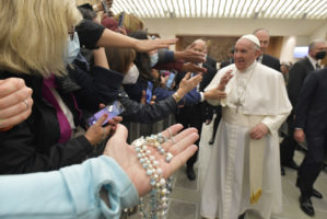
We have to go to great lengths to tear ourselves away from our own twisted loves in order to stand in the presence of God. That is the message the Church presents us with in the readings for the First Sunday of Lent, Year B.
That is exactly what we promise to do in Baptism: We reject Satan, his pomps and works, and all his empty promises. We promise to stand up to the malignant narcissist who has been gaslighting us our whole lives long.
As Lent begins, Jesus shows us how to do battle, spending 40 days in the desert as the model for our fight.
St. Mark’s Gospel reading this Sunday immediately follows the Gospel we heard at the Baptism of the Lord.
In January, we heard:
“On coming up out of the water he saw the heavens being torn open and the Spirit, like a dove, descending upon him. And a voice came from the heavens, ‘You are my beloved Son; with you I am well pleased.’”
This Sunday we hear the very next verse:
“At once, the Spirit drove Jesus out into the desert, and he remained in the desert for 40 days, tempted by Satan.”
This is an image of each of us today. At our Baptism, we rejected Satan and received the gift of the Holy Spirit and God saw us and was very pleased. But that was then and this is now. The force of the Holy Spirit is no longer the refreshing dove that hovers over us in celebration; now it is a driving wind pushing us to grapple with, and overcome, temptation.
Gaudium et Spes, the Second Vatican Council’s Pastoral Constitution on the Church in the Modern World, describes our situation this way:
“A monumental struggle against the powers of darkness pervades the whole history of man. The battle was joined from the very origins of the world and will continue until the last day, as the Lord has attested. Caught in this conflict, man is obliged to wrestle constantly if he is to cling to what is good, nor can he achieve his own integrity without great efforts and the help of God’s grace” (No. 37).
Mark describes the same thing in his succinct word picture of Jesus in the desert: “He was among wild beasts, and the angels ministered to him.”
Like Jesus, we live among wild beasts; only we find them in the disordered appetites of our own hearts. And we have to respond the same way. Jesus wants us to see that it takes serious fasting, prayer, and almsgiving to free us and give us dominion over the whole world.
“The ‘mastery’ over the world that God offered man from the beginning was realized above all within man himself: mastery of self,” says the Catechism, But, after the Fall, we are trapped and face “triple concupiscence that subjugates him to the pleasures of the senses, covetousness for earthly goods, and self-assertion, contrary to the dictates of reason.”
We dedicate ourselves to fasting to reset our relationship with the pleasures of the senses; we give alms to restore our right relationship with earthly goods which are meant for all; and we commit to prayer to replace our self-assertion with the will of God.
But we are terribly mistaken if we think of Lent as our time to show that we can take on Satan all alone.
We do nothing good in the spiritual life apart from God, but only with him and in him. We do not go into the desert to show God how great we are; we accompany Jesus into the desert, to show ourselves how great God is.
That’s another place where Jesus is a model for us: Because when we accompany Jesus it is Jesus as he is today, every day, and for all time: The one who died and rose to recapitulate his life in each of us.
“All human activity, constantly imperiled by man’s pride and deranged self-love, must be purified and perfected by the power of Christ’s cross and resurrection,” says Gaudium et Spes, through “detachment and liberty of spirit.”
If every human heart is in a battle to the death with an enemy of God fighting to win us over, then the world is a place of destruction and chaos filled with souls who have succumbed. We go into the desert with Jesus to disentangle ourselves from every model but him.
The story of Noah in the First and Second Reading point to our shelter in the storm.
Of course, most of us cannot literally go into the desert. Only those who are consecrated can withdraw from the world altogether. But the readings show us another way.
The story of Noah begins with God saying: “I will wipe out from the earth the men whom I have created, and not only the men, but also the beasts and the creeping things and the birds of the air, for I am sorry that I made them.”
The story then introduces Noah and his ark, which shelters sinners and wild animals, clean and unclean, through the storm. When the flood ends, after Noah did all that was asked, we get this Sunday’s First Reading: “I will establish my covenant with you, that never again shall all bodily creatures be destroyed by the waters of a flood.”
St. Peter in Sunday’s Second Reading, says, “This prefigured baptism, which saves you now.”
So while Lent in our hearts is like a desert we enter to grapple in a cosmic battle with Satan — and the storm we face in the world is like the raging waters of a flood — the Church, the Bark of Peter, carries us safely to our homeland of heaven.
In fact, Jesus is the culmination of a number of figures in Scripture who had to deal with the chaotic forces of wild animals and storms. Adam before the Fall was the master-namer of the animals, until he fell prey to the fallen angel Satan. Jonah was prey to a whale in a storm; Samson and David had to overcome wild beasts before they could lead; and Daniel had to survive for days with hungry lions.
In each case the way of God is a departure from the way of the world, and life is about realizing that we are not alone in the desert; we are not abandoned in the flood.
Sunday’s Gospel points to what our Lent should do in our lives.
After the 40 days were over and after John the Baptist was arrested, says the Gospel, “Jesus came to Galilee proclaiming the Gospel of God: ‘This is the time of fulfillment. The kingdom of God is at hand. Repent, and believe in the gospel.’”
Jesus ends his penitential season by calling people to “repent” — to undergo a metanoia, radically changing their lives to be part of a new kingdom, with Christ’s priorities in place of the “deranged self-love” inspired by Satan. This is what we agree to in baptism.
In baptism we promise “to reject sin so as to live in the freedom of God’s children,” and the fasting of Lent stretches our will so that we can truly make hard choices freely. That is why we give up chocolate, or more, for Lent.
In baptism you promised to “reject the glamour of evil, and refuse to be mastered by sin,” and the almsgiving of Lent pulls us away from the fascination we have with earthly goods toward the image of God, other people, instead. That is why we fill a “rice bowl” with change, or do more at Lent.
In baptism we “promise to reject Satan, father of sin and prince of darkness,” and Lent prayer is meant to reset our priorities to match Christ’s kingdom instead of Satan’s principality. That is why we pray the Stations of the Cross, or do more, during Lent.
Baptism on-boarded us to the Church; Lent is our annual personal decision to stay on deck as the Holy Spirit fills our sails to drive us home.
Image: Luca Galuzzi wikimedia sahara

